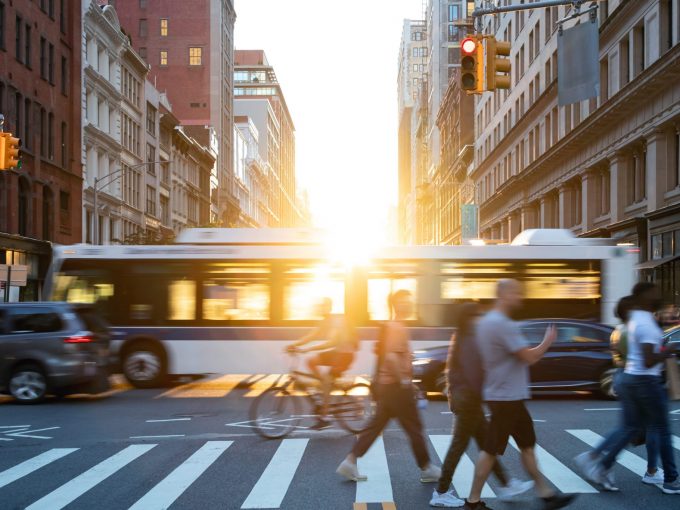New research shows almost one-third of app-based motorcycle taxi drivers in Vietnam have had a road crash, with an astounding 80% attributing the cause to their own risky driving.
Motorcycle taxi services are a vital transport option for people in Vietnam, and with the rise of new transport technologies such as GrabBike, app-based motorcycle taxi services have become increasingly popular.
Yet little is known about risky driving behaviours and their association with traffic crashes among app-based motorcycle taxi drivers.
Researchers from RMIT University and local transport scientists from Vietnam, including from the University of Danang, have examined risky road behaviour in a recently published paper that surveyed over 600 app-based motorcycle taxi drivers from Hanoi, Ho Chi Minh City and Da Nang.
Dr Chris De Gruyter. from the RMIT Centre for Urban Research. said mobile phone use while driving was the most frequent risky behaviour, with 52% of respondents engaging in this activity.
“Mobile phones are considered a necessary tool for app-based motorcycle taxi drivers, so this result is not surprising,” he said.
“Drivers need to use smartphones to receive ride requests from customers and contact them if necessary to confirm pick-up points.
“Some drivers also use their smartphones as a GPS device which can impact their driving performance.”
Neglecting to use signals when making a turn was the second most common risky behaviour among app-based motorcycle taxi drivers.
“Failure to use turn signals is also considered to be significantly associated with vehicle crashes,” De Gruyter said.
“Nearly 31% of our surveyed drivers admitted they did not signal when making a turn at least several times a year.”
The study found student drivers and those on lower incomes were more likely to engage in risky behaviours such as encroaching into car lanes, exceeding speed limits, running red lights, recklessly overtaking and driving under the influence of alcohol.
“Previous research shows that drivers with lower levels of income tend to engage in risky driving and were involved in traffic crashes where they attempted to increase their income by working longer hours,” De Gruyter said.
“We found that drivers working more than 50 hours per week were more likely to engage in most of the risky behaviours.”
Given these app-based services are regulated by online ride-hailing firms, De Gruyter said the reported incidence of risky driving behaviours among drivers was concerning.
“With the continual growth and expansion of these services in developing countries, targeted interventions are needed to reduce risky driving and crash rates among app-based motorcycle taxi drivers,” he said.
“This points to an opportunity for ride-hailing firms to determine those at risk through increased exposure and intervening to reduce risky driving.
“Increasing safety awareness among the identified groups through targeted training sessions organised by rail hailing firms could help reduce the frequency of road accidents.”
Story: Chanel Koeleman





